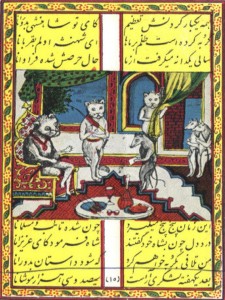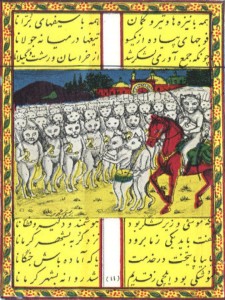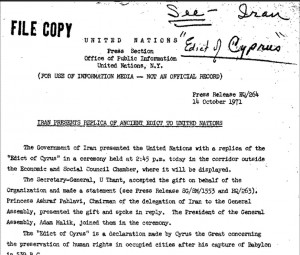Dear Michael,
Do you remember you promised me last year that my translation of this essay about the Berlin Wall by Lars Gustafsson will make me famous, because he will receive the next Nobel prize for literature. I had to remember your prognosis today, when on my walk through Stockholms old town I passed along Sweden Book Shop. During a rather long walk from the university through Norrmalm the weather was nice and dry, but when I arrived in the old center a chilly rain started. The shop windows of Sweden Book Bookshop looked very hospital and therefor I decided to look inside for shelter from the rain. The shop is specialized for Swedish literature, and there was a big collection of books on display by the 2011 Nobel Prize winner Thomas Transtroemer. To be honest, I did not knew him before, I can not even remember having heard about him in school during the Swedish lessons. But he is a Swedish writer, isn't he ? I just would like to know how long I have to wait to see Lars Gustafssons name on the news paper head lines and his books in the shop windows decorated with a Swedish flag, a Pegasus and a copy of the Nobel medaille? I'd like to show my parents that with the translation of Mr. Gustafssons text I not only did something that I enjoyed a lot, but also that I made the right guess of the most recognised contemporary Swedish author.
Take Care
/ghazal
------------------------------------------------------------------------------------
Ghazal, my Dear,
I'm not sure if it is good to tell you how much I was surprised to read that you took shelter from the rain in a book shop. Not in a fashion store, not in Adidas or H&M or Victorias Secrets outlets, let alone in a sweets bar like Coffee Break French or Cake Studio, all of which I am sure would also be around Stockholms old center when the cold rain cought you.
During the last two years you made a tremendous transformation, my dear. When you have been here in Munich in the summer 2010, you shocked me with the confession that you hate to read books. Last september, suddenly, you told me how much you enjoyed to read Charlotte Brontes "Jane Eyre". And now you even choose a book store as a place to give you shelter from the cold rain, and once inside you obviously began to look for a book by Lars Gustafsson, the great Swedish writer about whom we talked about two years ago.
I have to admit that I was also very angry and frustrated that the Swedish Academy selected Thomas Transtroemer (whom I knew perhaps even less than you did) for the Nobel prize, rather than Mr. Gustafsson. But we are perhaps not the only people who like good books but don't really feel that the list of Nobel prize winners is of big use as a recommendation (the only exception was Gabriel Garcia Marques, the books of whom I really discovered only after he received the prize).
Every year the world of readers like us, but also literature critics and book traders hope that one of their favorite writers will finally be selected by the Swedish Academy to receive the most prestigeous international award for literature. But usually, the surprising news that are always released one day in October cause eyebrow raising rather than a celebration, and too often people have to listen twice to realize that in fact they have not heard the name of the winner before. Usually, it is not the artistic quality of the books who guides the Swedish Academy to their decision, but clandestine political reasons.
Therefor, writers who coined the 20th century literature and became essential members of the world-wide cultural canon, such as James Joyce, Leo Tolstoy, Anton Chekhov, Franz Kafka, Berthold Brecht, Marcel Proust or Vladimir Nabokov, were permanently ignored by the Stockholm board of old school teachers. Other writers, which are largely forgotten today, were awarded the price apparently more with the intention to give them publicity and financial support. Otherwise, the small readership of their books and limited success would let them vanish into oblivion. The motivation of the Academy to give the price to them reminds me a lot of the socialist way of providing support and resources: Help those who show missing success, and refuse support to those who are successful. Who still remembers the names of - or even read a book by - Nobel price winners such as Eyvind Johnson, Harry Martinson, José Echegaray, Giosuè Carducci, Verner von Heidenstam, Carl Spitteler, Jacinto Benavente, Grazia Deledda, Vicente Aleixandre, Erik Axel Karlfeldt, Roger Martin du Gard, Frans Eemil Sillanpää, Saint-John Perse, Patrick White ? And who really trusts that Hertha Mueller, J.M. Gustave Le-Clesio or Derek Walcott will have a big readership after their books are removed from the shop windows of "must-known" Nobel-price winners and returned to the back-room bookshelfs or even further away into the Amazon category of "currently not available" items ?
It is also no big surprise that a strong bias exists related to the nationality of the Nobel prize winners. Since the Swedish Academy board is exclusively made up of Swedish authorities, they have a preference to give the award to writers from their own or other skandinavian countries. During the last 110 years Norway, Denmark, Sweden and Finland together had 15 Nobel prize winners among their authors. Sweden alone had 8, the same number as the United States. Does this imply that Swedish literature is as influential as the North American ? This of course would be a very subjective judgement, but some more statistics might help here, since numbers are just numbers and they tell you only facts (for the same reason you did the statistical genetics during your MSc project). If we relate the frequencies of literature Nobel prizes in Sweden and the US to the population size of both countries than we come to the surprising conclusion that a Swedish person has a more than 30fold higher chance to be selected for the prize than anybody from the US. So if you are a writer and reach for the Nobel prize, you should try as quickly as possible to get a Swedish citizenship. If you are american, than better reach for something else (like the Oscar for the best movie script). Does this mean that Swedish people have a 30 times greater literature talent than Americans ? According to Horace Engdahl, permanent secretary of the Swedish Academy, this is the true. In an interview in 2008 he declared that "Europe still is the center of the literary world" and that "the US is too isolated, too insular. They don't translate enough and don't really participate in the big dialogue of literature."
No other country has received more Nobel Prizes for literature per capita than Sweden, and in absolute numbers is more succesful than all of Asia, as well as all of Latin America. There is just one exception, better described as a singularity. And this is Lars Gustafsson, whom the Swedish Academy with mind shaking consistence refuses its recognition. There is no doubt about the exceptional literature qualities of Mr. Gustafsson, about his influence on other writers worldwide and his recognition by readers, critics and academics in his own country and abroad. He is both a very productive writer with a broad horizon and interest in psychology, natural science, politics and history, and a great entertainer. His novels and stories deal with issues of our modern society, but are narrated in a fine and classical style. And all of his books are at least in part cosmopolitan. And here starts the problem of the Swedish Academy with their own compatriot writer Lars Gustafsson: He "deflected" for 23 years to the US, where he was lecturer at the University of Texas in Austin. He also lived for two years in Berlin and made several extensive trips to other countries. Reading his books like "The Tennis Player", "The Dean" or "Bernard Foy's Third Castling" shows that his style of writing and his sujets and his views about the individuum and the society is much closer to the contemporary US literature than to the scandinavian world. And this is the reason why the Swedish Academy ignores this great writer from their own country with stubborn resistance. In this view, literature as a global medium of communication has a poor stake in the Swedish Academy.
Take Care, my dear Michael
 [/caption]
[/caption]




